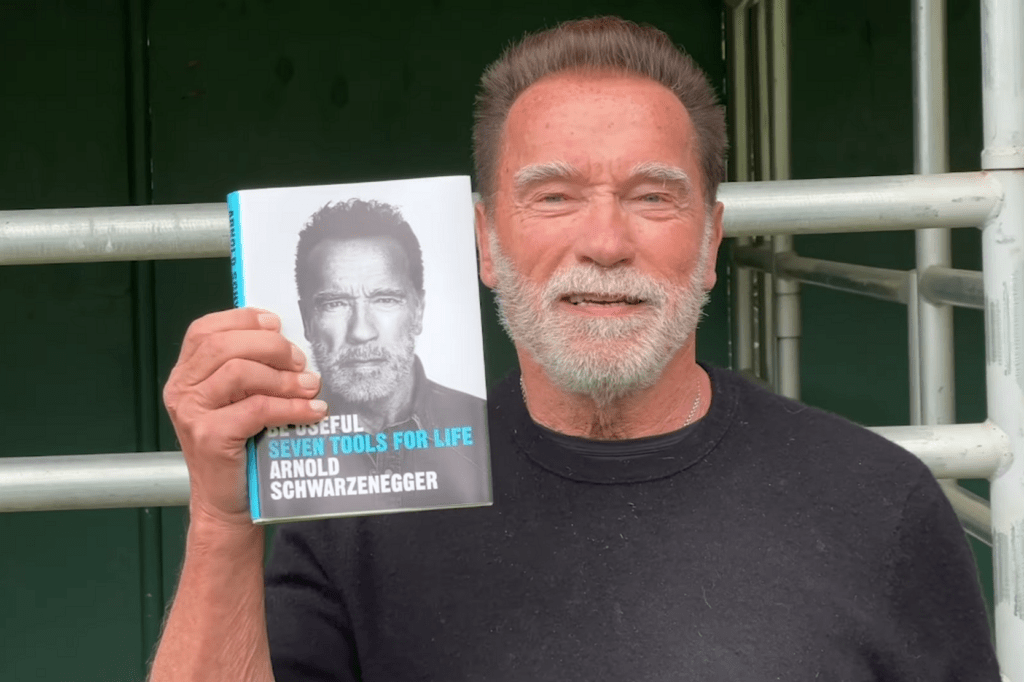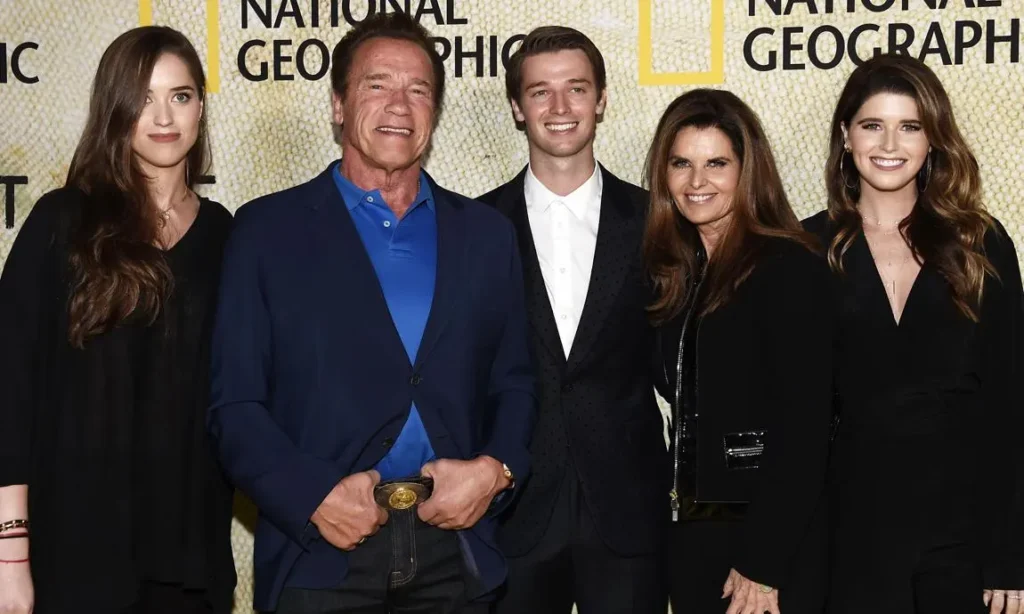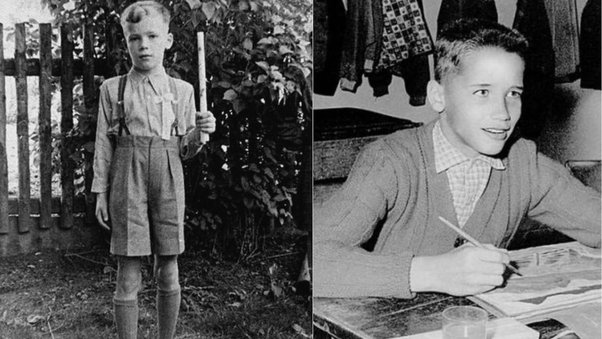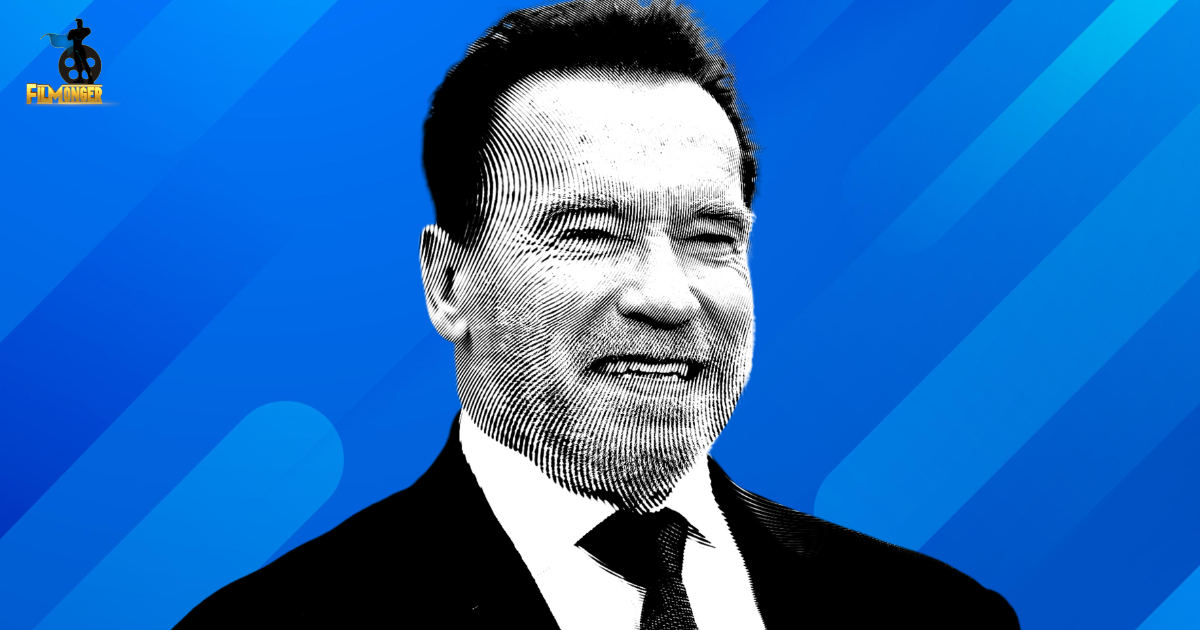Arnold Schwarzenegger shares his personal life lessons and why he succeeded in his new motivational book, Be Useful: Seven Tools for Life. He ensures that he shares with his children how he feels about them.
I love you,
he writes on Instagram, on their birthdays.
I’m proud of you.
I would say that I’m really well-bonded with my kids,
Schwarzenegger stated in an interview this week.
However, he did not receive any affirmations from his father while growing up in the deserted town of Thal, Austria. His father, who was at war against the Nazis in WWII, became prone to violence when he was drunk, hitting his brother, Arnold, and his mother.
My father had a hot-and-cold-shower kind of a treatment,
shared Schwarzenegger.
When he was drunk, he was not forthcoming with his emotions. He was angry. And when he was not—two, three days later, he would maybe feel guilty and buy us ice cream and take us out, hugging, kissing and all that stuff.
Throughout the FUBAR star’s childhood, his father’s motto was simple,
Be useful.
It’s what the star has lived by and decided to write his new inspirational book, Be Useful: Seven Tools for Life, which will be released on Oct. 10 by Penguin Press, which includes his greatest life lessons.

Be useful, was the very phrase that motivated me,
the Terminator star said.
Despite the adopted phrase, he cannot share this book release or get closure from his father, who passed away in 1972.
I was never looking for closure. I’m not into all this stuff. Because I never really blamed my father for anything. I never ran around and said, It’s my father’s fault. It’s nobody’s fault.
I have always fond memories of my dad, and I always will have fond memories of my dad. And I don’t blame him for anything, simply because he did not know any better. He was beaten when he was a kid. It was just a tradition. And then he was forced into [WWII], and was misled,
said Schwarzenegger, in a video where he firmly spoke against anti-Semitism this year.
Hate is the path of the weak,
he said in the speech.
He added,
I felt that my father loved me, because I could tell by the way he held me. I learned how to feel those things rather than to hear those things.

In a certain extract from Be Useful, the star shares experiences from his difficult childhood in Thal, Austria, and how he gathered his experience to fuel himself into a universal superstar.
None of us has a choice about where we come from. I grew up in a small village in Austria at the beginning of the Cold War. My mother was very loving. My father was strict, and he could be physically abusive, but I loved him very much. It was complicated.
I think a lot about how different my life could have been if I wasn’t a positive person, if I’d responded differently to my upbringing in Thal. I didn’t have a hot shower or regular meat in my diet until l left for the army as a teenager. My daily morning routine involved fetching water and chopping firewood, which was brutal in the wintertime and earned me exactly zero sympathy from my father, who’d been through much worse when he was a kid. There were no free passes in Gustav Schwarzenegger’s house. No free meals either. I had to do two hundred knee bends every morning just to earn my breakfast. Nothing works up an appetite like bobbing up and down like a pogo stick on an empty stomach.

The drudgery of all that discomfort and thankless labor could have broken my spirit or made the images of America that I saw in magazines and newsreels seem impossibly far away. It could have drubbed the instinct to look over the horizon out of me. I certainly wasn’t getting any encouragement at home to think about life beyond the hills of southeastern Austria. There was a good job with the police waiting for me when I got out of the army. Others should be so lucky, my father thought. He also didn’t understand or approve of my interest in bodybuilding. He thought it was egotistical and selfish. Why don’t you chop some wood instead, he would say, you can get big and strong that way and at least then you will have done something for somebody else. Then there were the times he would come home drunk after work and hit us. Those nights were very hard.
I could very easily have allowed myself to get wrapped up in all that, but I chose to look at the positive. I have always made that choice—to recognize that on the vast majority of days my father was a good dad and my mother was the best mom. That life wasn’t exciting or particularly comfortable, not by modern standards anyway, but it was a good life. A life where I learned a lot and I found my passion, my purpose, and my first mentors.
Even with the undeniably bad things, I choose to remember that they were a big part of what drove me to escape, to achieve, to become the person I am today. If my childhood was just a little bit better, you might not be holding this book right now. And if it was a little bit worse, you might not be holding it either, because I could have fallen down the same rabbit hole of alcoholism that my brother fell down, which eventually cost him his life in a drunk-driving accident in 1971. I owe a lot to my upbringing. I was made for it and made by it.
